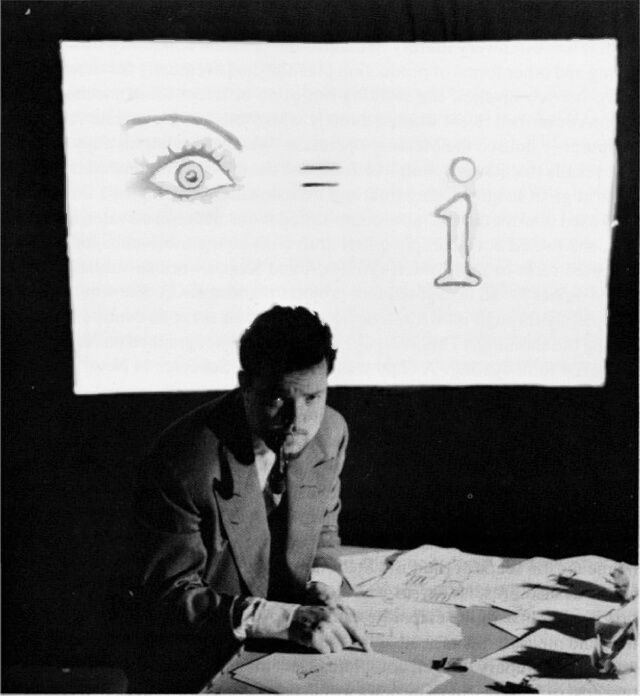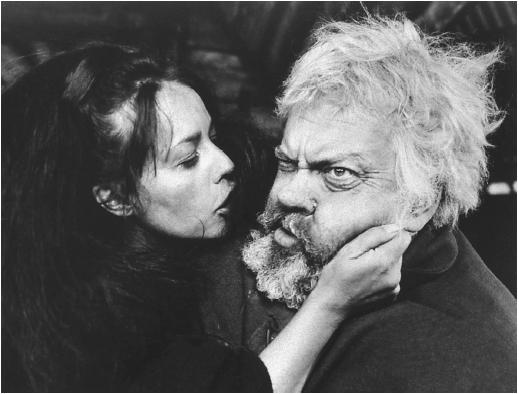
My essay was a major labor of love. It's an intense analysis of the Eastern and Western philosophies that are inherent in the film, with a little bit of a noir lens thrown in there for you cinema dudes, but then... well, you'll see. I subconciously formatted my argument within the same structure of the film. It must have slipped itself in after countless viewings. Because I'm shamelessly proud of it and want everyone I know to read it (especially fellow fans!) and because I'm afraid of losing the document to the infinite electronic abyss, and because I'm just plain vain, I wanted to post it right here on my blog. (I'm pretty sure I can hear a groan from all of you who are sick of hearing and reading it, but who cares! A girl's gotta be proud of something!)
The flickering candlelight reveals a close-up on the Dude’s oddly feminine and well-kempt feet, toes protruding delicately from the murky soapy water; resting on the far side of the pale pastel pink tub. We can hear the mellow, muffled cassette tape titled, “Songs of the Whale.” The Dude, in all his 45-year-old shaggy-haired glory, smokes a tiny joint, and chokes on his toke at the ringing of the phone. The camera quickly cuts away again, but this time to the answering machine, then back to The Dude, blowing smoke serenely with his eyes closed. The voice we hear is from the L.A.P.D., informing the Dude that his stolen car has been recovered.
“Far out, man…Far fucking out…” we hear the Dude exhale in a reefer-filled whisper, as the tail end of his rejoicing is disturbed by the loud banging of the Nihilists’ baseball bat on his answering machine. The Dude tries to see the ruckus out of the bathroom doorway, declaring “This is a private residence, man!” as three blonde-haired, thin German Nihilists are revealed. As they approach The Dude, the camera follows their boots and the viewer sees that one of them is walking an amphibious rodent – a ferret – on a leash. The Dude nods his head and leans over slightly to look at it, visibly annoyed and mistakenly commenting, “Nice marmot.” We now see the three wan German Nihilists from The Dude’s point of view in the tub, as one of them picks up the rodent and drops it in the water, right between the Dude’s laughable chicken legs. “Where is ze money, Lebowski?!” the Nihilists shout. The Dude, our protagonist in The Big Lebowski played by Jeff Bridges, is a mellow, lazy guy who, in the parlance of our times, does his own proverbial “thing,” and gets mixed up in a confusingly hilarious plot of greed and clashing ideologies. The Nihilists declare that they “believe in nuzzing,” yet they are actively pursuing monetary gain. The Dude is the true Nihilist – he’s too lazy to care…or is it that he’s too wise?
He responds to the chaos around him by “abiding” through doing what he is told by various authoritative characters, eventually proclaiming, “Ah, fuck it,” when he realizes that all the falderal isn’t worth whatever compensation he might receive. The Dude rolls through life like his bowling ball down his alley, strikingly similar to the tumbling tumbleweed shown navigating the streets of Los Angeles in the very beginning of the film. He just is, very much like the Tao of Taoism. In fact, one of the rare times that he gets flustered, his friend Walter notices: “C’mon, you’re being very un-Dude,” – how about “un-Tao,” instead? As Zhuangzi, an ancient leader of Taoism, wrote: “The Tao cannot be seen: if you see it, it is not that. The Tao cannot be spoken, if you speak it, it is not that” ("Zhuangzi"). The Dude is effortless in his ways. No matter what happens he somehow always becomes “privy to the new shit” and things seem to work out for the best. As long as he keeps his mind limber and open – usually with the aid of a “strict drug regimen” – he is able to figure out all of the crazy happenings that unfold before him.
The beginning of the film shows us the Dude, donning a robe and jellies, in a brightly lit grocery store late at night. The contrast of his warm-colored clothing in the vibrant super-market really proves to set him apart from everybody else. He’s special, different. As he saunters through the aisle to the check-out counter, our narrator, The Stranger, startles our ears with his raspy cowboy voice, introducing this odd character: “Sometimes there’s a man . . . And I’m talkin’ about the Dude here - - sometimes there’s a man who, wal, he’s the man for his time’n place.” Another man who warrants a similar introduction is no one other than the Buddha himself. The Four Noble Truths and The Eightfold Path of Buddhism are eerily present within The Dude in The Big Lebowski.
For those who aren’t familiar with the whole Buddhist “Eastern thing,” the Four Noble Truths are: 1) Life is suffering, 2) Suffering is due to attachment, 3) Attachment can be overcome, and 4) There is a path for accomplishing this (“The Basics of Buddhist Wisdom”). Who’s more unattached than The Dude? He has no wife, no family, no kids, no job, no money, and he seems perfectly content. Tai-chi, bowling, driving around, the occasional acid flashback, drinking White Russians, and smoking marijuana just may be the Dude’s own abbreviated version of The Eightfold Path. After every time something significant happens to him, he’s either at the bowling alley, rolling a joint, or having a drink. One smashing example of this is when the millionaire Lebowski calls upon The Dude to act as courier. Brandt, The Big Lebowski’s assistant, ushers The Dude in to discuss the situation. It is awkward for the viewer to see the Dude in a dramatically dark room lit only by the serious fireplace, which The Big Lebowski is sitting in front of in his wheelchair with a blanket on his lap. Brandt stands solemnly in his tailored suit between the two men with his head down, arms stiff at his side, fingers spread apart robotically. The Dude, however, is dressed in a light-colored baseball t-shirt and leans back in his chair listening to The Big Lebowski blubber about his manhood and the alleged kidnapping. The Dude interrupts: “Mind if I do a jay?” This juxtaposition is visually intoxicating. In this Western World, The Dude keeps his Eastern composure and stays on track in the face of trouble which turns out to be a scam, anyway. The viewer learns a Buddhist lesson from The Big Lebowski. Once The Dude experiences attachment through desire – or in Sanskrit, “trishna” – of compensation for his rug, life isn’t so pleasant. Suddenly he’s responsible for the removal of a woman’s toe, the destruction of a corvette, and the death of his friend.
At the end of a classic Neo-Noir such as L.A. Confidential, loose ends are tightly tied like the shoelaces of an accomplished adult, similar to the works of Raymond Chandler consisting of tiny little interactions that perpetuate the plot. The “ins and outs” of the incongruous events are curtly explained, leaving the viewer thinking, “Ahh, now I get it.” This is not the case in The Big Lebowski, whose end resembles the loose double-knots and bunny ears of the too-long shoelaces of your average toddler. Not everything ends up making sense, and the viewers are on their own if they want some kind of definite answer. The Coens aren’t concerned with – or, perhaps, are above – providing analyses of their films. It’s up to the viewer to provide meaning for themselves. But that’s how, according to The Stranger, “The whole durned human comedy keeps perpetuatin’ itself:” our lives’ distinctive events may not always be overwhelmingly meaningful upon first glance. To bring back some Eastern perspective, The Western Stranger is promoting the Buddhist principle of “anatman,” or the notion that all things are interconnected and interdependent; nothing has a separate existence (“The Basics of Buddhist Wisdom”).
The character Jesus Quintana tends to be the most momentous part of the film to the viewer but really has nothing to do with the rest of the plot . . . or does he? Perhaps if the movie was given a little more time we might have seen the second coming of Jesus as a distant relative of Bunny’s or a former member of the German Nihilists’ techno-pop group, “Autobahn.” Even if this didn’t turn out to be the case, sometimes the most significant events in our lives are the moments that last just a few seconds. Neo-Noir and Eastern philosophy are serious in their critiques of the human existence; the Coens are not. Life’s peculiarity is beyond labeling or classifying, as the message of The Big Lebowski isn’t in the Dude himself, but in getting it from him. Although it is usually detrimental to dissect and inspect films, The Big Lebowski is one of the few whose value increases exponentially with each viewing. If we think hard enough or let a sufficient amount of time pass, we can provide some kind of explanation and label for anything if we really want to – except maybe the floating topless women.
WORKS CITED
"An Interview with The Coen Brothers, Joel and Ethan about "The Big Lebowski".
"IndieWire. 02 Mar 2007. Coen Brothers. 29 Mar 2007
Boeree, C. George . "The Basics of Buddhist Wisdom." Shippensburg University. 29 Mar
2007
Horsley, Lee. "An Introduction to Neo-Noir." Neo-Noir. 02 Mar 2007. Crime Culture. 29
Mar 2007
Pregadio, Fabrizio. "Zhangzi." Taoism and the Taoist Canon. 02 Mar 2007. Stanford
University Department of Religious Studies. 29 Mar 2007
Scholes, Robert. "On Reading a Video Text". The Advanced College Essay: Education
and the Professions. Ed. William M. Morgan and Pat C. Hoy II.
Boston: Pearson Custom Publishing, 2007. 205-206.




























